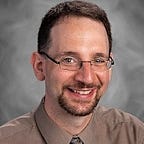Why science is losing the war
The answer may have to do, not with atoms, but with stories
It may seem surprising that the Trumpian “war on science” has gained so much traction, and that empirical, rational thought continues to lose ground to charismatic snake oil salesmen all over the world. Even during a global pandemic, when science is more important than ever, a perplexing number of people are willing to tolerate, even to cheer on, a President who sidelines, berates and defunds the very scientists and health experts upon whom our lives depend. How can we explain this?
The problem isn’t that science is too complex or too boring for the average person to understand; science can be made “simple and sexy,” as Mr. Wizard, Neil deGrasse Tyson and Star Trek have all proved.
To understand why science’s power is on the wane, we might want to consider the words of American poet Muriel Rukeyser: “The universe is made of stories, not atoms.”
Science’s weakness is that, ultimately, it tells us stories we don’t want to hear. That no, we can’t keep buying tons of cheap consumer luxuries or driving everywhere we want, or we’ll wreck the planet. No, we can’t stop social distancing to restart the economy or we’ll spread COVID-19 further. It asks us to sacrifice present comfort for a less-comfortable sounding future, often on the basis of things that are not…
